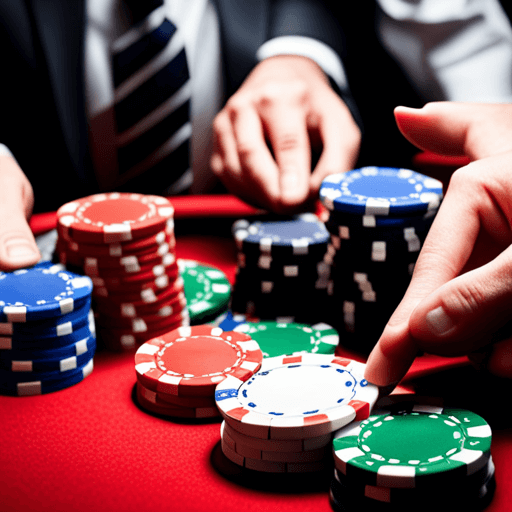The Health Lottery is a unique lottery initiative that operates on behalf of twelve local society lotteries across Great Britain. Launched in October 2011, it runs five weekly draws on Tuesdays, Wednesdays, Thursdays, Fridays, and Saturdays, providing essential funding to health-related causes in various regions. In this comprehensive guide, we will explore the history, structure, game rules, and controversies surrounding the Health Lottery, and discover how its operations make a significant difference in communities across the UK.
History of the Health Lottery
Origins and Early Development
The origins of the Health Lottery can be traced back to the failed National Health Service Lottery, which had an unsuccessful launch in 1988 before being declared illegal. In 2007, Altala Group Ltd., a company led by Ian Milligan, a former Camelot Group employee, purchased the assets of the NHS Lottery. Altala went into administration in 2009, shortly before receiving its gambling license, and was subsequently acquired by Health Lottery Ltd [^3^]. In February 2011, Richard Desmond's Northern & Shell group bought the Health Lottery after winning the license to operate it [^4^].
Launch and Reorganization
The Health Lottery officially launched in September 2011. Until the summer of 2018, the organization operated 51 society lotteries across Great Britain. In July 2018, the structure was reorganized to form 12 new larger community interest companies (CICs) covering England, Scotland, and Wales [^5^]. This reorganization also saw changes to the playing structure, ensuring a minimum jackpot of £25,000 and shortening the odds of winning any prize to 1 in 9.7 [^6^]. Additionally, the monthly Mega Raffle was introduced, guaranteeing one Health Lottery player a cash prize of £250,000 [^7^]. The first Mega Raffle was drawn on September 1, 2018.
Game Structure
The Health Lottery is drawn five times a week, on Tuesdays, Wednesdays, Thursdays, Fridays, and Saturdays [^8^]. Participation in the game requires a minimum fee of £1, with winnings ranging from a free ticket to a jackpot of £250,000.
Broadcasting
Initially, the Health Lottery draws were broadcast live on the ITV network during an advertisement break of The X Factor, paid for by Northern & Shell. The draws were quickly moved to Channel 5, which was, at the time, Northern & Shell's subsidiary. Currently, draws are broadcast at around 9:55 pm on Channel 5 [^8^].
Initially, Eamonn Holmes was set to host the lottery draws, but due to a potential conflict of interest with his employment at Sky News, he was replaced by Melinda Messenger [^9^][^10^]. In 2015, Anthea Turner, a former National Lottery presenter, took over as host for the new-look draws [^13^].
Controversies
The Health Lottery has faced criticism for donating only 20.3% of the ticket price to causes, compared to the 28% donated by the National Lottery [^14^]. However, Health Lottery spokespeople argue that the game will grow the market and provide increased funding for health-related causes.
Additional concerns were raised about the legality of the Health Lottery, with questions surrounding its operations and impact on smaller lotteries nationwide [^17^]. The Gambling Commission investigated the issue, and in 2012, Camelot Group attempted to take High Court legal action to have the Health Lottery's gambling license revoked. However, they were unsuccessful, and the Health Lottery continued its operations [^18^].
Structure of the Health Lottery
The Health Lottery is not structured as a national lottery but rather as twelve different society lotteries, each representing at least one local authority area within England, Scotland, and Wales [^19^]. Each society lottery is licensed by the Gambling Commission and operates as an individual community interest company (CIC). Different CICs take turns participating in the weekly draw, ensuring that every region receives a share of the funds raised.
Money raised through the Health Lottery is donated to support health-related causes within the respective local areas. The allocation of funds is determined by the relevant CICs and their partner charity, the People's Health Trust, and not by The Health Lottery ELM Ltd [^19^]. Typically, local charities and grassroots projects receive support from these funds.
How the Health Lottery Operates
The Health Lottery operates on behalf of six Community Interest Companies (CICs), managing six society lotteries that operate in 12 geographical regions across Great Britain. These CICs aim to tackle health inequalities in their respective areas.
People's Health Trust (PHT) is an independent charity that assesses grant applications based on pre-determined criteria and awards funding across the 12 regions. For every lottery ticket, QuickWin game, and online scratch card purchased, 20.34% is donated to good causes. For the main lottery game, 20.34% of each £1 ticket sold is returned to good causes, 30.98% is spent on prizes, and 54.66% is spent on expenses [^1^].
The odds of winning the jackpot in the Health Lottery are 1 in 2.1 million, while the odds of winning any prize are 1 in 9.7. The winning numbers are selected using an approved random number generator (RNG) [^1^].
Customer Support and Website Quality
The Health Lottery's website and customer support have faced criticism for their quality and reliability [^2^]. Some users have experienced issues with the payment process, while others have found the website's design and functionality to be lacking. Despite these concerns, the Health Lottery continues to operate and support vital health causes in communities across Great Britain.
Conclusion
The Health Lottery is a unique initiative that provides essential funding to health-related causes in various regions across Great Britain. Despite facing controversies and criticism, the organization continues to make a significant difference in communities by supporting local charities and grassroots projects. By participating in the Health Lottery, players contribute to the improvement of health inequalities and the wellbeing of those in need.

